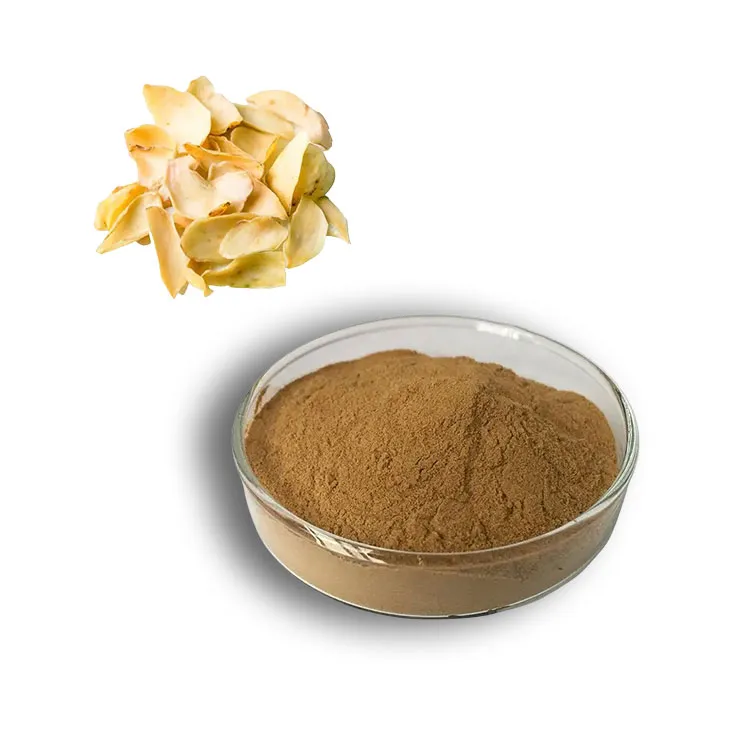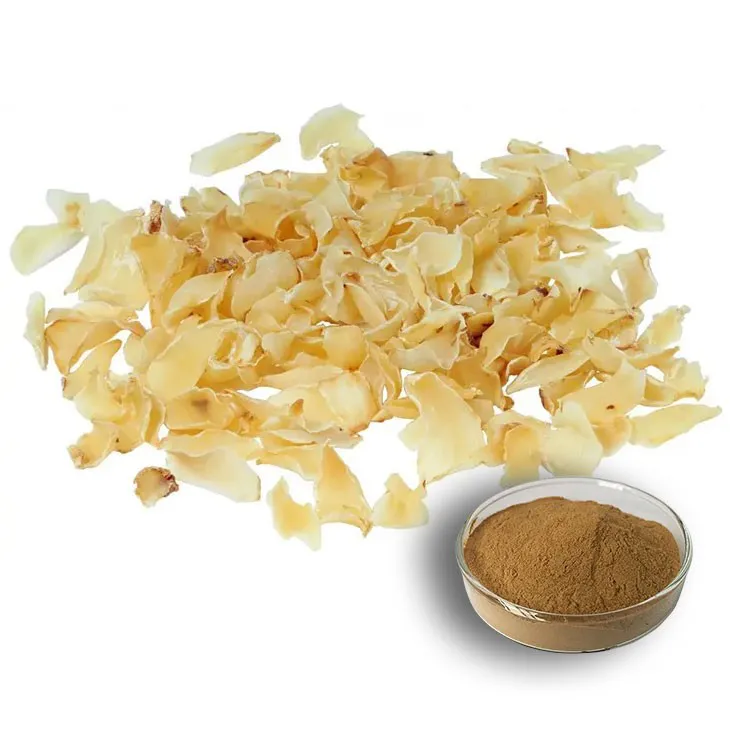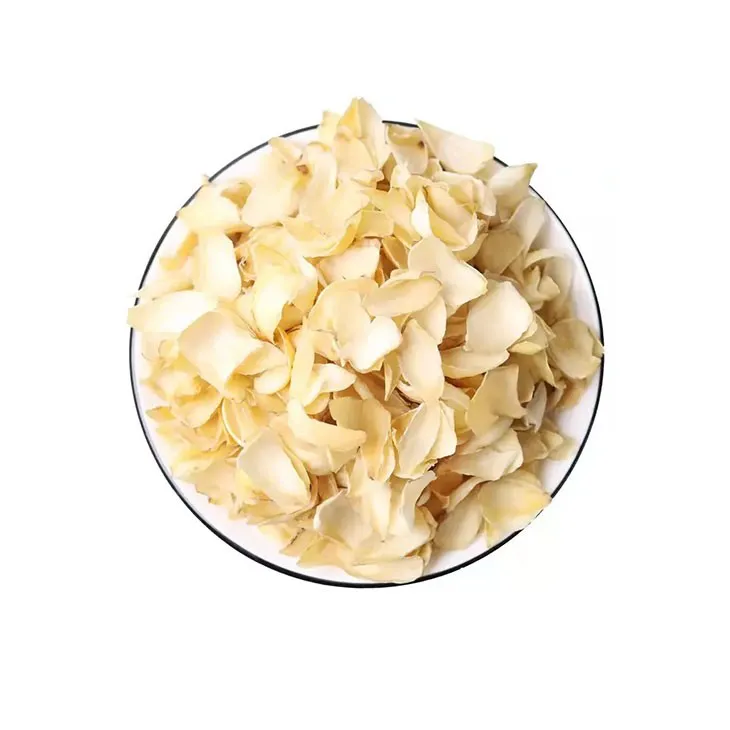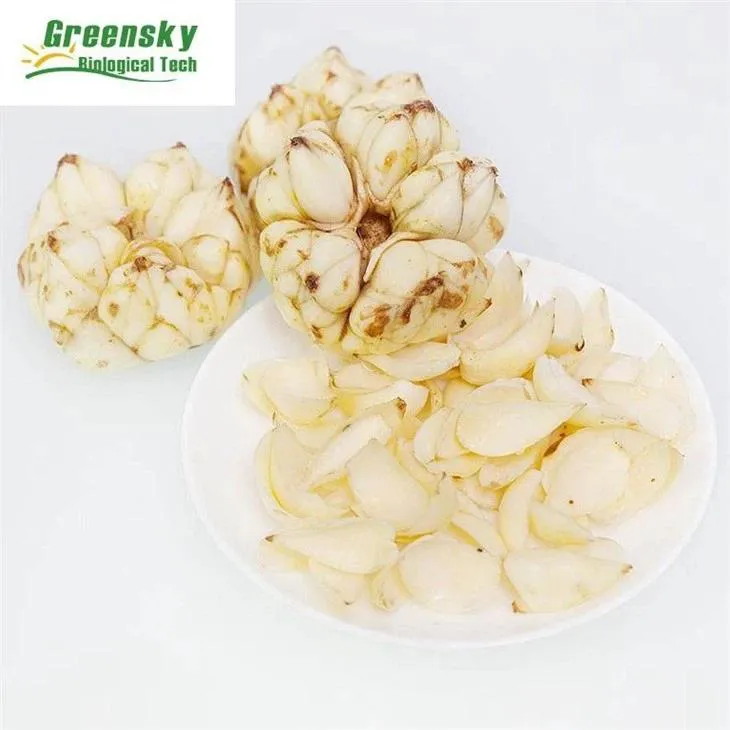- 0086-571-85302990
- sales@greenskybio.com
Powerful Lily Extract: Its Role in Athletic Performance
2024-11-12

Introduction
In the world of sports and athletic performance, athletes are constantly seeking natural and effective ways to gain an edge. One such emerging area of interest is the potential role of Lily extract in enhancing various aspects of athletic performance. This article aims to explore in detail how Lily extract can contribute to increased strength, improved focus during exercise, and reduced muscle fatigue, making it a promising element for those striving for peak physical performance.

The Composition of Lily extract
Lily extract is derived from the lily plant, which is known for its rich composition of bioactive compounds. These compounds play a crucial role in the potential benefits it offers to athletic performance.
Flavonoids
Flavonoids are a major component of lily extract. They are known for their antioxidant properties. In the context of athletic performance, antioxidants are important as they help in combating oxidative stress. During intense exercise, the body generates a large number of free radicals, which can cause damage to cells. Flavonoids in lily extract can neutralize these free radicals, protecting the cells from damage and potentially reducing the risk of inflammation. This is especially relevant for athletes as inflammation can lead to decreased performance and longer recovery times.
Alkaloids
Another group of compounds present in lily extract are alkaloids. These have been shown to have various physiological effects on the body. Some alkaloids may have a stimulant - like effect, which could potentially enhance focus and alertness during exercise. This can be a valuable asset for athletes, especially in sports that require high levels of concentration, such as archery or gymnastics.

Lily Extract and Increased Strength
There are several mechanisms by which lily extract may contribute to increased strength in athletes.
Muscle Protein Synthesis
One way is through its potential influence on muscle protein synthesis. Muscle growth and strength development are closely related to the rate of muscle protein synthesis. Some of the bioactive compounds in lily extract may stimulate the pathways involved in muscle protein synthesis. This means that the body is better able to build and repair muscle tissue, leading to increased strength over time. For example, in a study on laboratory animals, those supplemented with lily extract showed an increased rate of muscle protein synthesis compared to the control group. While more research is needed to confirm these results in humans, it shows the potential of lily extract in this regard.
Nitric Oxide Production
Lily extract may also play a role in increasing strength by influencing nitric oxide production. Nitric oxide is a molecule that helps in dilating blood vessels. When blood vessels are dilated, it allows for better blood flow to the muscles. This increased blood flow brings with it more oxygen and nutrients, which are essential for muscle function and strength. By promoting nitric oxide production, lily extract can ensure that the muscles receive an adequate supply of these vital elements, enabling them to perform at a higher level.

Enhancing Focus during Exercise
The ability to maintain focus during exercise is crucial for optimal athletic performance, and lily extract may offer some assistance in this area.
Neurotransmitter Regulation
Lily extract may regulate neurotransmitters in the brain. Neurotransmitters such as dopamine and norepinephrine are involved in maintaining focus, attention, and motivation. By influencing the levels or activity of these neurotransmitters, lily extract can potentially enhance an athlete's ability to concentrate during training or competition. For instance, some alkaloids in the extract may interact with the receptors for these neurotransmitters, leading to increased neurotransmitter activity. This can result in a sharper mental state, allowing athletes to better execute their skills and strategies.
Stress Reduction
Stress can be a major distraction during exercise, and lily extract may have stress - reducing properties. High - stress levels can disrupt an athlete's focus and performance. The antioxidant and anti - inflammatory properties of lily extract may help in reducing stress - related inflammation in the body and the brain. This, in turn, can lead to a more relaxed and focused state of mind, enabling athletes to perform better without being hindered by stress - induced distractions.

Reducing Muscle Fatigue
Muscle fatigue is a common problem faced by athletes, and lily extract shows potential in alleviating this issue.
Energy Metabolism
Lily extract may play a role in optimizing energy metabolism within the muscles. During exercise, muscles rely on various energy sources, such as glycogen and fatty acids. The bioactive compounds in lily extract may help in more efficient breakdown and utilization of these energy sources. This means that the muscles can sustain their energy levels for a longer period, delaying the onset of fatigue. For example, flavonoids in the extract may enhance the activity of enzymes involved in energy metabolism, ensuring a continuous supply of energy to the muscles.
Muscle Recovery
Another aspect of reducing muscle fatigue is promoting muscle recovery. After intense exercise, muscles need to recover quickly to be ready for the next training session or competition. Lily extract may aid in this process by reducing inflammation and promoting the repair of damaged muscle tissue. The antioxidant properties of the extract can help in minimizing oxidative damage to the muscles, while its potential to stimulate muscle protein synthesis can speed up the repair process. This faster recovery means that athletes can experience less residual muscle fatigue and be able to perform at a high level more consistently.
How to Incorporate Lily Extract into an Athletic Regimen
If an athlete is interested in incorporating lily extract into their training regimen, there are several options to consider.
Supplements
One of the most common ways is through the use of lily extract supplements. These are available in various forms, such as capsules or powders. When choosing a supplement, it is important to look for a high - quality product from a reputable manufacturer. Athletes should also consult with a healthcare professional or a sports nutritionist before starting any new supplement to ensure its safety and compatibility with their existing diet and medications.
Natural Sources
Another option is to consume natural sources of lily extract. This can include eating lily bulbs or products made from lily bulbs, such as certain traditional Asian dishes. However, it is important to note that the concentration of the active compounds may vary depending on the source and preparation method. Additionally, some people may have allergies or sensitivities to lily products, so caution should be exercised.
Conclusion
In conclusion, lily extract shows great potential in enhancing athletic performance. Its ability to potentially increase strength, enhance focus during exercise, and reduce muscle fatigue makes it an interesting area of study for athletes and sports scientists alike. However, more research is still needed to fully understand its mechanisms of action and to confirm its effectiveness in human athletes. As the field of sports nutrition continues to evolve, lily extract may emerge as a valuable addition to the arsenal of tools available for those aiming for peak physical performance.
FAQ:
Q1: How does lily extract increase strength?
Lily extract may contain certain bioactive compounds. These compounds could potentially interact with the body's physiological processes. For example, they might influence muscle protein synthesis or the function of the neuromuscular system, which in turn could lead to an increase in strength. However, more research is needed to fully understand the exact mechanisms.
Q2: Can lily extract really enhance focus during exercise?
It is hypothesized that lily extract may have properties that can affect the brain's neurotransmitters or blood flow. This could potentially result in improved focus during exercise. Some studies suggest that certain components in lily extract might have a mild stimulatory effect on the central nervous system, but the evidence is not yet conclusive.
Q3: What are the specific components in lily extract that reduce muscle fatigue?
There could be multiple components in lily extract involved. Some potential candidates are antioxidants and anti - inflammatory substances. Antioxidants can help combat oxidative stress in muscles, which is often associated with muscle fatigue. Anti - inflammatory components may reduce inflammation in muscles, allowing them to function better for a longer period. But again, more in - depth research is required to identify the exact components.
Q4: Is it safe to consume lily extract for athletic performance?
While lily extract may show potential benefits for athletic performance, safety is an important consideration. In general, when consumed in moderation, it may be safe for most people. However, some individuals may be allergic to lilies or certain components within the extract. Also, there is a lack of long - term safety studies. It is advisable to consult a healthcare professional before starting any new supplement regime.
Q5: How should lily extract be consumed for optimal athletic performance?
The optimal way of consuming lily extract for athletic performance has not been fully established. It could potentially be consumed in the form of supplements, tinctures, or incorporated into certain foods. Dosage also varies depending on factors such as body weight, overall health, and the specific goals of athletic performance. Research is ongoing to determine the most effective and safe consumption methods.
Related literature
- The Potential of Plant Extracts in Sports Performance"
- "Bioactive Compounds from Lilies: Health and Performance Implications"
- "Role of Natural Extracts in Reducing Muscle Fatigue during Exercise"
- ▶ Hesperidin
- ▶ Citrus Bioflavonoids
- ▶ Plant Extract
- ▶ lycopene
- ▶ Diosmin
- ▶ Grape seed extract
- ▶ Sea buckthorn Juice Powder
- ▶ Fruit Juice Powder
- ▶ Hops Extract
- ▶ Artichoke Extract
- ▶ Mushroom extract
- ▶ Astaxanthin
- ▶ Green Tea Extract
- ▶ Curcumin
- ▶ Horse Chestnut Extract
- ▶ Other Product
- ▶ Boswellia Serrata Extract
- ▶ Resveratrol
- ▶ Marigold Extract
- ▶ Grape Leaf Extract
- ▶ New Product
- ▶ Aminolevulinic acid
- ▶ Cranberry Extract
- ▶ Red Yeast Rice
- ▶ Red Wine Extract
-
White mustard seed extract
2024-11-12
-
Buckthorn bark extract
2024-11-12
-
Ivy Extract
2024-11-12
-
Eyebright Extract
2024-11-12
-
Dandelion Root Extract
2024-11-12
-
Kelp Extract Powder
2024-11-12
-
Berberis aristata Extract
2024-11-12
-
Purple Sweet Potato Extract
2024-11-12
-
Angelica sinensis extract
2024-11-12
-
Ginseng Root Extract
2024-11-12





















